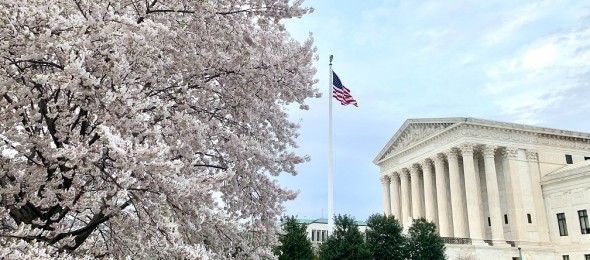The Supreme Court of the United States has agreed to consider whether asking a party to an arbitration agreement to demonstrate prejudice when claiming a waiver defense violates the requirement established 10 years ago in AT&T Mobility, LLC v. Concepcion, which stated courts must “place arbitration agreements on an equal footing with other contracts.” In Morgan v. Sundance, Inc., No. 19-2435 (8th Cir., March 30, 2021), an Iowa worker, Morgan, filed a putative class action wage and hour lawsuit against her employer, Sundance, Inc., in federal court.
Although Sundance initially filed a motion to dismiss Morgan’s lawsuit based on the “first-to-file” rule due to pending litigation in another state, the trial court eventually denied the company’s motion. After that, Sundance filed an answer to Morgan’s complaint. Morgan then unsuccessfully participated in settlement mediation with the plaintiffs in the other case. Approximately eight months after it was initially filed, however, Morgan’s lawsuit proceeded.
Next, Sundance filed a motion to compel Morgan’s lawsuit to arbitration based on the terms of Morgan’s employment agreement. The district court concluded the company previously waived its right to arbitration and denied Sundance’s motion. After that, Sundance filed an appeal with the Eighth Circuit Court of Appeals.
On appeal, the Eighth Circuit reversed the lower court’s decision because Morgan failed to demonstrate she was prejudiced by the delay. According to the court:
The district court found Morgan was prejudiced by having to respond to Sundance’s motion to dismiss over the eight-month span of litigation. We disagree. Four months of the delay entailed the parties waiting for disposition of Sundance’s motion to dismiss. No discovery was conducted. And, the record lacks any evidence that Morgan would have to duplicate her efforts during arbitration. Instead, most of Morgan’s work focused on the quasi-jurisdictional issue, not the merits of the case. For these reasons, we hold Morgan was not prejudiced by Sundance’s litigation strategy.
Morgan then filed a petition for certiorari with the U.S. Supreme Court claiming she would not be required to demonstrate prejudice for any other contract.
The question presented in the case is:
Does the arbitration-specific requirement that the proponent of a contractual waiver defense prove prejudice violate this Court’s instruction that lower courts must “place arbitration agreements on an equal footing with other contracts?” AT&T Mobility LLC v. Concepcion, 563 U.S. 333, 339 (2011).
In its November 15, 2021, Orders List the nation’s highest court granted Morgan’s petition. Interestingly, the Supreme Court also granted a motion for leave to file a brief as amici curiae in support of granting the petition that was filed by a group of law professors.
Morgan made an interesting argument in her appeal. We can’t wait to see how the Supreme Court handles it. Please check back soon for more information on this case!
In the meantime, do not hesitate to reach out to Karl’s team if you need a skilled and experienced remote arbitrator, mediator, or special master for your technology case.
Photo by: Bill Mason on Unsplash














